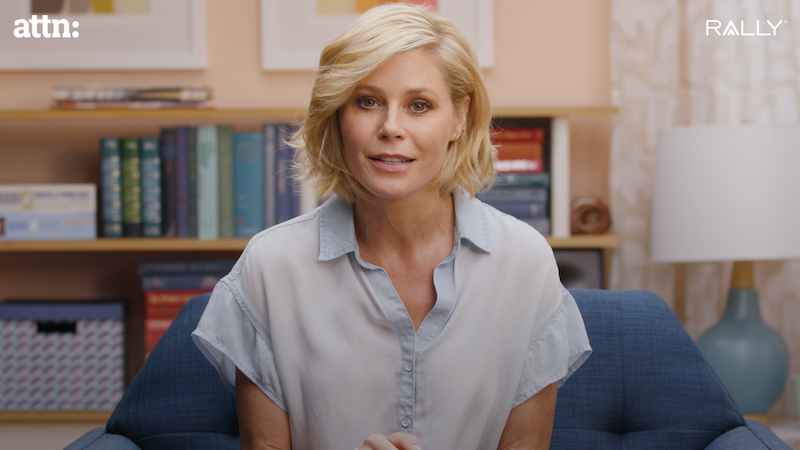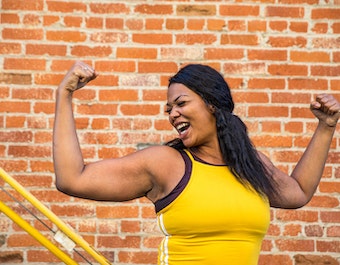Actress Julie Bowen may be best known for playing Claire Dunphy on the TV show “Modern Family,” but at her own house she’s known simply as Mom. And one of her favorite daily rituals is sitting down to dinner with her three kids and asking about their day.
“Talking about your feelings and mental health doesn’t necessarily mean sitting down once a month and saying ‘how are you,’ in a big oppressive way,” she says. “It can mean going around the table and talking. What was the high point of your day? What was the low point of the day?”
COVID-19 has certainly intensified the highs and lows many Americans are feeling right now, from gratitude for good health and more time with family, to the grief, stress, and fear of having our routines upended by a deadly virus. A national Rally Health survey found that nearly a quarter of Americans say their mental health has gotten worse during this time.
Talking — whether in heart-to-heart conversations around the dinner table or in sessions with a trained professional — can help. But it’s also essential that we recognize that mental health is a cornerstone of good health, says Steve Olin, chief product officer at Rally Health. In the Rally survey, only 1% of Americans identified mental health, depression, and stress management as an important part of preventive care.
Julie Bowen, Steve Olin, and Optum Medical Care family medicine specialist Elmo Agatep, MD, discuss why preventive care is so much more than an annual checkup and share both personal and proven tips for adopting small habits that can have a big impact on your health — mental and otherwise. (Plus, find out why a “cone of silence” works wonders in Julie Bowen’s family.)
Hungry for more inspiring, helpful health info? Julie Bowen hosts the four-part docuseries Population Health, presented by Rally Health and ATTN, which focuses on personal, real-life stories to help people take charge of their physical and mental well-being.






